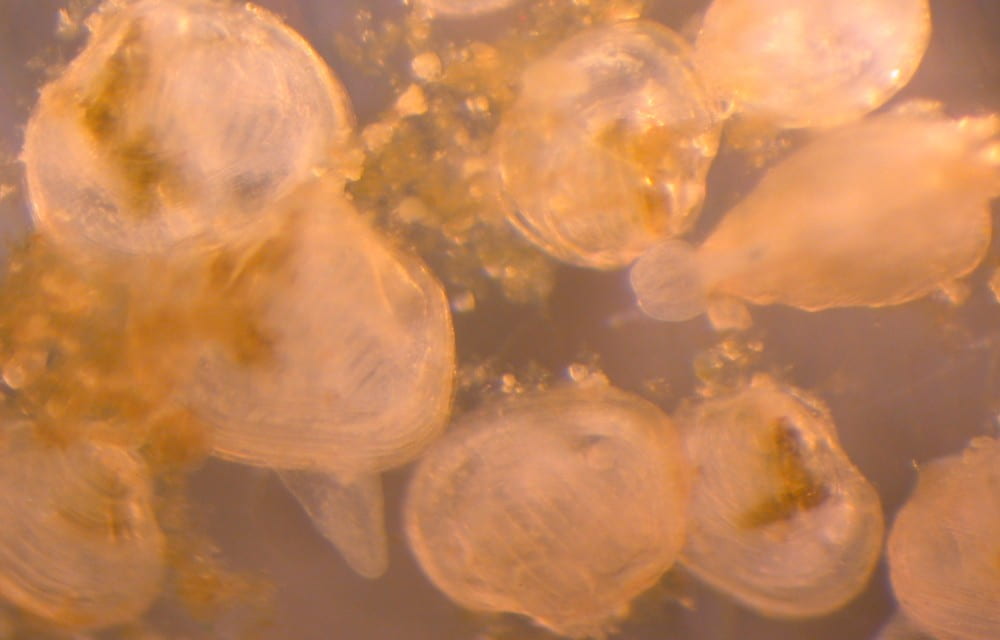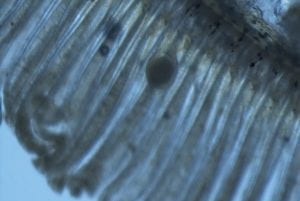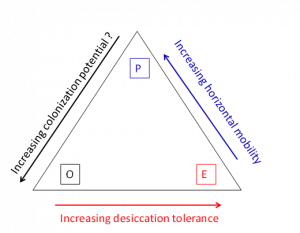Metacommunity ecology as theoretical framework to understand complexity of patterns and processes
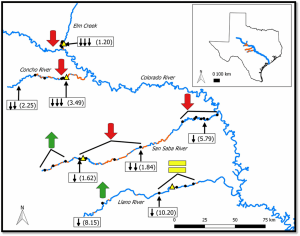
Examining the impact of the severe drought in 2011/12. Red arrows indicate decline of mussels especially in smaller tributaries.
Explaining spatial and temporal variation in community composition has long been a key interest of ecologists and has been one focus of my research in rivers, where disturbance is a strong driver of community structure and dynamics. My lab has examined both spatial and temporal variation in
- mussels (Dascher et al. 2018, Mitchell et al. 2019),
- macroinvertebrates (Zawalski et al. 2019),
- and fish communities (Trombley et al. 2018, Schwalb et al. 2015).
I have also examined the role of dispersal for metacommunity structure in freshwater mussels (Schwalb et al. 2015, Freshw. Bio); this paper was the first in the field of metacommunity ecology to test this with a taxonomic group where all species use the same dispersal mode that depends on another group of organisms (passive via host fish).
Ecology of freshwater mussels
Much of the research in my lab has focused on the ecology of native freshwater mussels including behavior of mussels, mussel host fish interactions, and reproductive ecology. Research in my lab has advanced basic knowledge about this imperiled group of organisms while addressing both theoretical and applied questions. Topics my lab has addressed include:
- Examining differences in metamorphosis success of mussels on host fish from different tributaries in a river basin (Seagroves et al. 2019).
- Seasonality of gamete production (Mitchell & Schwalb 2021).
- Proposed a life-history based framework for responses of mussels to drying events (Mitchell et al. 2018).
- Burrowing behavior (Hernández et al. 2021).
Survey methods:
- Testing the the efficiency of different survey methods under different habitat conditions (Sanchez and Schwalb 2019).
Invasive species
Another focus area of my research has centered on invasive zebra mussels including their: 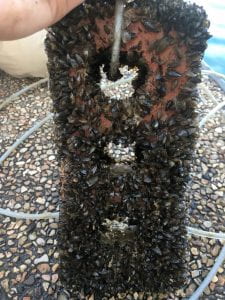
- spread via boaters (Robinson et al. 2020)
- dispersal downstream of invaded reservoirs (Olson et al. 2018),
- impact on ecosystem processes (Schwalb et al. 2015).
My lab has established long-term monitoring sites in Canyon Lake, since the lake was invaded in 2017. The sites have been used to examine population dynamics of zebra mussels and die-off events.
